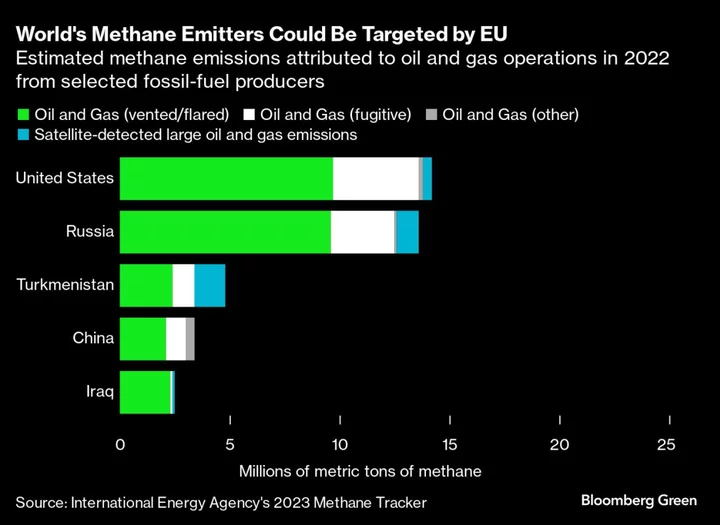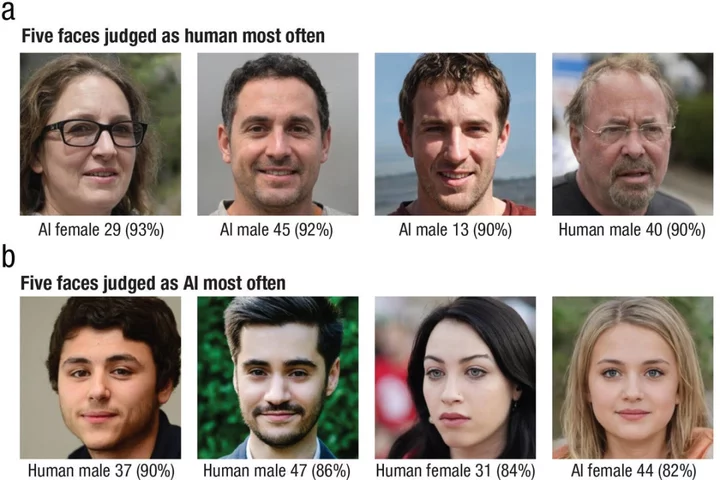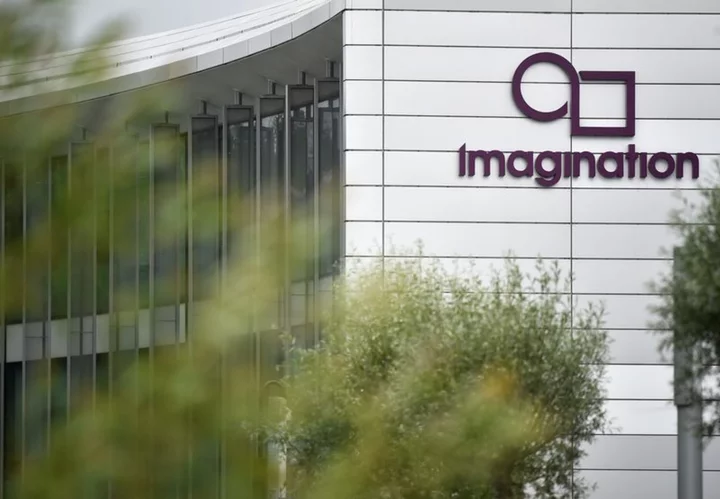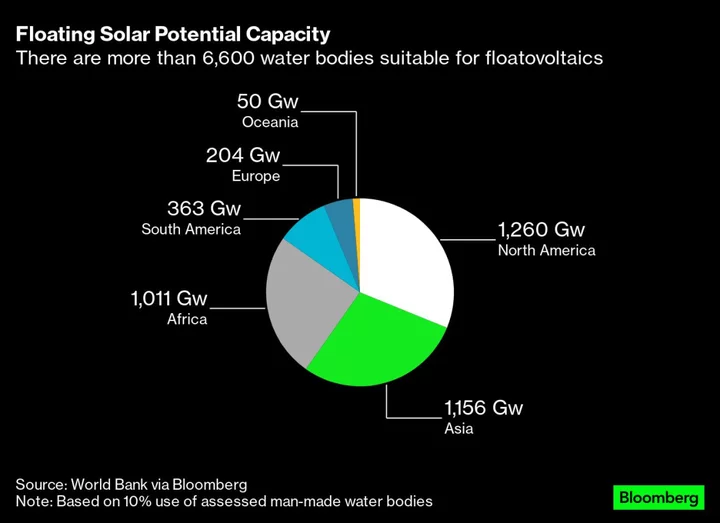
AI among biggest threats to next UK general election, cyber security agency warns
The rise of artificial intelligence (AI), as well aggressive state-aligned groups pose a significant threat to critical infrastructure, the UK’s cyber security agency has said. In its annual review, the National Cyber Security Centre (NCSC) warned ongoing geopolitical challenges and AI also posed a threat to UK elections. Published on Tuesday, the NCSC’s Annual Review said the Centre, which is part of GCHQ, had seen the emergence of a new type of cyber adversary in the last year – state-aligned actors who are ideologically, rather than financially, motivated. The NCSC highlighted China and Russia as enduring and significant threats to UK cyber security, noting that many of the new state-aligned groups it had seen appear were sympathetic to Russia’s invasion of Ukraine. On artificial intelligence, the NCSC warned that the next general election in the UK, expected next year, will be the first to take place against the backdrop of significant advances in AI, which it said would enable and enhance existing challenges. The cyber security agency said that large language models (LLMs) – the technology apps such as ChatGPT are built on – would almost certainly be used to generate fake content as part of disinformation campaigns to disrupt the democratic process. Beyond the present challenges, we are very aware of the threats on the horizon, including rapid advancements in tech and the growing market for cyber capabilities Lindy Cameron, NCSC At the first AI Safety Summit, held in the UK earlier this month, industry figures and world leaders warned of the potential for AI to help cybercriminals carry out more sophisticated cyber attacks. “The last year has seen a significant evolution in the cyber threat to the UK – not least because of Russia’s ongoing invasion of Ukraine but also from the availability and capability of emerging tech,” NCSC chief executive Lindy Cameron said. “As our annual review shows, the NCSC and our partners have supported government, the public and private sector, citizens, and organisations of all sizes across the UK to raise awareness of the cyber threats and improve our collective resilience. “Beyond the present challenges, we are very aware of the threats on the horizon, including rapid advancements in tech and the growing market for cyber capabilities. “We are committed to facing those head on and keeping the UK at the forefront of cyber security.” The annual review said work needed to be done to ensure the UK kept pace with the changing threats, particularly in relation to enhancing cyber resilience in the nation’s infrastructure. Read More Private parole hearing for one of killers of James Bulger to begin Papers react to Sunak’s reshuffle ‘gamble’ over return of Cameron Thunderstorm warning in effect as downpours continue in parts of UK Immigration minister Robert Jenrick vows to see Rwanda deportation plan through Cost-of-living payments not enough to meet scale of the problem, say MPs Applications open for owners to register XL bully dogs before ban
2023-11-14 15:48

Europe Warns Methane Polluters as Bloc Pushes to Slash Emissions
The European Union aims to slash methane emissions by clinching a deal that could have global ramifications if
2023-11-14 12:19

AI can create Caucasian faces that look more real than actual humans – study
Artificial intelligence (AI) can generate Caucasian faces that seem more realistic than actual human faces, according to a new study. As per the research, published in Psychological Science and led by experts at the Australian National University (ANU), more people thought the AI-generated white faces were human than the faces of real people. The study found, however, that the same did not apply to faces generated of people of colour. If white AI faces are consistently perceived as more realistic, this technology could have profound implications for people of colour by ultimately reinforcing racial biases online Dr Amy Dawel According to senior author of the paper, Dr Amy Dawel, the reason for the notable difference between generated Caucasian faces and people of colour comes down to the fact that AI algorithms are trained disproportionately on white faces. Dr Dawel said: “If white AI faces are consistently perceived as more realistic, this technology could have profound implications for people of colour by ultimately reinforcing racial biases online. “This problem is already apparent in current AI technologies used to create professional-looking headshots. “When used for people of colour, the AI is altering their skin and eye colour to those of white people.” Researchers found when it comes to AI “hyper-realism”, most people did not realise they were being fooled. Study co-author and ANU PhD candidate Elizabeth Miller said researchers found that most of the study participants who were most confident that their answers were correct paradoxically thought that the AI faces were real. She said: “This means people who are mistaking AI imposters for real people don’t know they are being tricked.” The researchers were also able to discover why AI faces are fooling people. Although there were still physical differences between the AI and human faces, study participants still managed to misinterpret them. Dr Dawel revealed more in-proportion faces were typical signs that AI had generated a face. However, people mistook it as a sign of humanness. She added: “We can’t rely on these physical cues for long. AI technology is advancing so quickly that the differences between AI and human faces will probably disappear soon.” She said this could have profound implications regarding online misinformation and identity theft. Dr Dawel urged public transparency around AI so society can identify issues with the technology before they become more significant problems. “Given that humans can no longer detect AI faces, society needs tools that can accurately identify AI imposters,” she said. “Educating people about the perceived realism of AI faces could help make the public appropriately sceptical about the images they’re seeing online.” Read More AI among the biggest threats to the UK, cyber security agency warns Meta faces renewed criticism over end-to-end encryption amid child safety fears Call of Duty launch sparks record traffic on broadband networks Crypto investment fraud warning issued by major bank Council investigating extent of cyber attack that affected website and systems Setback for Ireland as EU legal adviser recommends revisit of Apple tax case
2023-11-14 10:58

Environmental change threatens what's left of Japan's cormorant fishing legacy
By Kim Kyung-Hoon OZE, Japan Please click here for photo essay: Cormorants have been a constant presence in
2023-11-14 10:29

Japan’s Green Switch Falls Short of Global Goals, Climate Researchers Say
Japan’s planned transition toward cleaner energy contradicts pathways recommended by a United Nations body to help keep global
2023-11-14 09:22

Fisker cuts 2023 production forecast as it struggles to ramp up deliveries
By Samrhitha A and Abhirup Roy Electric-vehicle startup Fisker slashed its 2023 production guidance on Monday as it
2023-11-14 08:46

AI among the biggest threats to the UK, cyber security agency warns
The rise of artificial intelligence (AI), as well aggressive state-aligned groups pose a significant threat to critical infrastructure, the UK’s cyber security agency has said. In its annual review, the National Cyber Security Centre (NCSC) warned ongoing geopolitical challenges and AI also posed a threat to UK elections. Published on Tuesday, the NCSC’s Annual Review said the Centre, which is part of GCHQ, had seen the emergence of a new type of cyber adversary in the last year – state-aligned actors who are ideologically, rather than financially, motivated. Beyond the present challenges, we are very aware of the threats on the horizon, including rapid advancements in tech and the growing market for cyber capabilities Lindy Cameron, NCSC The NCSC highlighted China and Russia as enduring and significant threats to UK cyber security, noting that many of the new state-aligned groups it had seen appear were sympathetic to Russia’s invasion of Ukraine. On artificial intelligence, the NCSC warned that the next general election in the UK, expected next year, will be the first to take place against the backdrop of significant advances in AI, which it said would enable and enhance existing challenges. The cyber security agency said that large language models (LLMs) – the technology apps such as ChatGPT are built on – would almost certainly be used to generate fake content as part of disinformation campaigns to disrupt the democratic process. At the first AI Safety Summit, held in the UK earlier this month, industry figures and world leaders warned of the potential for AI to help cybercriminals carry out more sophisticated cyber attacks. “The last year has seen a significant evolution in the cyber threat to the UK – not least because of Russia’s ongoing invasion of Ukraine but also from the availability and capability of emerging tech,” NCSC chief executive Lindy Cameron said. “As our annual review shows, the NCSC and our partners have supported Government, the public and private sector, citizens, and organisations of all sizes across the UK to raise awareness of the cyber threats and improve our collective resilience. “Beyond the present challenges, we are very aware of the threats on the horizon, including rapid advancements in tech and the growing market for cyber capabilities. “We are committed to facing those head on and keeping the UK at the forefront of cyber security.” The annual review said work needed to be done to ensure the UK kept pace with the changing threats, particularly in relation to enhancing cyber resilience in the nation’s infrastructure. Read More Meta faces renewed criticism over end-to-end encryption amid child safety fears Call of Duty launch sparks record traffic on broadband networks Crypto investment fraud warning issued by major bank Council investigating extent of cyber attack that affected website and systems Setback for Ireland as EU legal adviser recommends revisit of Apple tax case Smartphones ‘may be able to detect how drunk a person is with 98% accuracy’
2023-11-14 08:29

GPU tech supplier Imagination Technologies lays off 20% of staff -sources
By Max A. Cherney (Reuters) -Chip technology design maker Imagination Technologies plans to lay off 20% of the company’s staff,
2023-11-14 07:29

Senator asks Treasury to bar Chinese battery firms, minerals from US EV tax credits
By David Shepardson WASHINGTON (Reuters) -Democratic Senator Joe Manchin urged the U.S. Treasury on Monday to adopt the "strictest possible
2023-11-14 06:22

Here's Everything to Expect in MW3 Season 1
MW3 Season 1 is coming with Warzone map, Urzikstan, 3 new multiplayer maps, a fresh Battle Pass, and more on Dec. 6, 2023.
2023-11-14 05:59

When Does MW3 Season 1 Start?
MW3 Season 1 likely starts on Wednesday, Dec. 6, 2023, and includes the MW3 Battle Pass, Urzikstan, and new multiplayer maps.
2023-11-14 05:56

Bank of America’s $1.5 Billion Deal Casts Doubt on Texas Energy ‘Boycott’ Label
Bank of America Corp. led a $1.5 billion natural gas bond sale for oil-giant BP Plc just as
2023-11-14 05:22
You Might Like...

F1 Manager 23 review: In the slipstream to greatness

Floating Solar Panels Turn Old Industrial Sites Into Green Energy Goldmines

'Record' ocean temps lift Atlantic hurricane outlook

In wartime Ukraine, going back to school means preparing for air raids and huddling in shelters

Get a refurbished touchscreen Chromebook for under $90

Telltale Games confirms studio job losses

Factbox-Who's who in the Supreme Court's affirmative action cases

Overwatch 2 May 2023 Twitch Drops: All Rewards, Dates
